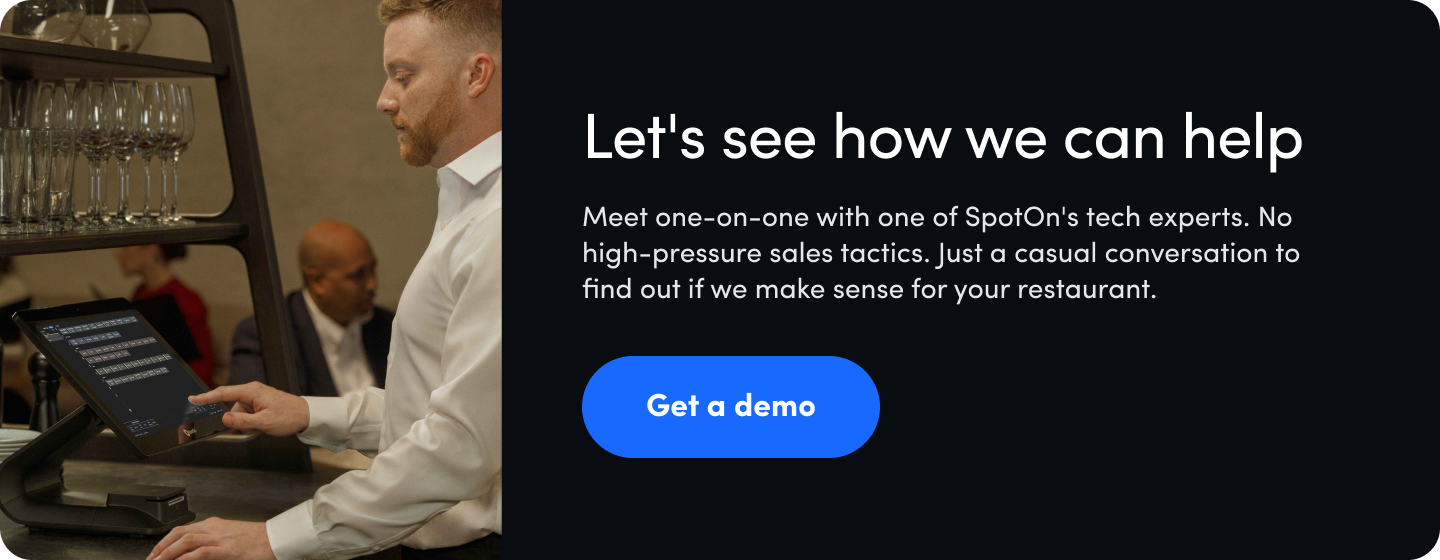Restaurants and other small businesses operate on slim margins. Repairing equipment, credit card fees, hiring and training staff are all necessary expenses, but they're costly. When you're just opening, understaffed, or trying to grow, it can be tough to figure out where to trim the fat and make the numbers work.
For this reason, many restaurants and other small businesses implement some kind of fee to offset operating expenses without skyrocketing prices for their customers. Restaurants, with the gratuity system and fluctuating cost of goods, often rely on service fees or sometimes surcharge fees to stay in business. The requirements and legislation around fees vary state by state. To determine which fees are allowed, how much can be charged, and how they’re disclosed to customers, businesses need to research local and state laws and potentially consult a legal professional to ensure compliance.
New legislation has grouped different types of fees together as "junk fees." Lawmakers are concerned that some fees hurt customers by inflating the advertised price with opaque, mandatory add-ons. But just as mom-and-pop taqueria operations differ from those of a multinational corporate burger chain, not all fees have the same impact on the consumer and business.
Here are some types of fees your small business might encounter and how to approach them.
What are some common fees?
Surcharging
A surcharge is an additional fee that a business adds to a customer's bill for using a credit card. Surcharge fees are used to offset the cost of credit card processing fees for the business. Of all service and convenience fees, surcharging requires the strictest rules. Both states and credit card companies pose limitations on how and when businesses can surcharge. These rules must be followed exactly to maintain compliance.
Service fees
A service fee pays for services related to the business's main product. At most establishments, paying a service charge isn't the same as leaving a tip. A service charge is mandatory and specifies a certain amount, usually a percentage on the final bill. Some common service fees are corkage fees, hotel room service charges, delivery fees, and private event fees.

Is cash discounting (aka dual pricing) considered a fee?
A cash discount is different than a surcharge or service fee. Rather than charging more, it offers a discount to encourage customers to pay in cash rather than by card, helping the business avoid costly credit card transactions. Businesses that offer cash discounts can either display card prices or display both cash and card prices, which is why cash discounts are sometimes called dual pricing. Businesses that adopt this model display two prices, one for cash payments and another for credit card transactions, on either the menu, order screen or receipt.
Cash discounting is legal in all 50 states but requires correct implementation. Businesses are required to either display dual pricing (card and cash prices, side-by-side) or advertise card prices and offer a discount to customers paying in cash. Businesses can't add a credit card surcharge during the payment process and waive it if the customer is paying with cash or debit card.
California's junk fee law, explained
California, alongside New York, Illinois, and Minnesota, is moving towards enacting junk fee bans—with the potential for even more states to follow suit. The law, SB 478, went into effect July 1, 2024, and prohibits fees imposed on a bill in addition to the listed prices. That includes service fees, employee healthcare costs, and even large party fees that have become the norm in many restaurants. As of July 9 2024, the California legislature passed SB 1524 specifying that the junk fees ban provision does not apply to restaurants. That means restaurants can charge service fees, but must provide proper disclosure to guests.
Lawmakers see mandatory fees as unfair or deceptive and want to incentivize businesses to bake these costs into item or menu prices. However, customers lack awareness of the operating costs required to run a small business, particularly in the restaurant industry, and are likely to shy away from sudden price increases.
Junk fee bans will not impact taxes, delivery fees, or shipping costs. However, this law impacts auto-gratuity for large parties (i.e., the 18% tip automatically applied to parties of 6 or more). Restaurants that apply auto-gratuity will need to bundle the additional costs of a large party into the advertised price on the menu.
How to ensure compliance (and minimize headaches)
Whether you're navigating cash discounting or eliminating surcharges before an upcoming state ban, there are steps you can take to minimize risk and irritation.
1. Check your state's laws
If you operate a small business or restaurant in a state that outlaws service fees, you will need to factor these additional charges into your menu or product pricing before the law's start date. Stay up to date on your state and local government laws around junk fee bans, surcharging, and service fee rules.
State laws may specify whether or not businesses can charge additional fees, the percentage or amount they're allowed to charge, and how the business is required to communicate their prices. Consider consulting a legal professional to understand how state laws and federal regulations apply to your business and ensure full compliance.
2. Display correct signage
If you operate in a state where surcharging is permitted and you decide it's a good fit for your business, you'll need to adhere to certain requirements. This includes disclosing the surcharge fees and clearly alerting your customers that credit card payments will be subject to an additional fee. These fees must be limited to credit cards and don't apply to debit cards and prepaid cards.
Be sure to brief your staff on surcharging requirements so that they're able to explain the practice to inquisitive customers and know how to maintain compliance. If your business is able to implement service fees, these will also need proper disclosure on your business’s website or menu.
If you charge a service fee and operate a business in California, proper disclosure is essential. That means displaying the mandatory fee and its purpose “clearly and conspicuously” on an advertisement, menu, or other display.
3. Update your menu's pricing
Unfortunately, banning additional fees won't make the myriad costs of running a small business disappear. You'll need to incorporate these fees into your menu prices, which might require a reevaluation of your menu engineering matrix in general.
This could mean developing menu prices for large parties (or promoting set menus, if that's something that works for your concept). It could also mean developing "dine in" versus "take out " prices that take the labor cost of service into account.
When menu prices are in flux, whether due to supply chain challenges or menu updates, QR menus can provide a huge benefit. QR Code menus let you change your menu prices on the fly and ensure your guests get the most accurate information available. Plus, you can save on menu printing costs—especially as you're still working out the best pricing.
4. Communicate changes to your staff and customers
Price changes and operational tweaks seem small, but they can have a big impact on your customers and staff. Before implementing price changes, brief your staff on how to communicate the increase to guests. If you have a loyal following, consider reaching out to your marketing list to explain the impact the junk fees ban will have on your restaurant or business.
5. Get Support
Running a small business can be a lonely task, particularly when you're forced to navigate sudden changes. Seek out a network through your local chamber of commerce or state restaurant association. Additionally, you might be able to tap into support from your point-of-sale system. If you're a current SpotOn client, you can reach out to ComplianceHelp@SpotOn.com.
Adapting to change can be burdensome and costly, but it pales in comparison to the attorney's fees and court costs that may come with non-compliance. As more and more states consider laws similar to SB 478 in California, stay up to date with new regulations so your business can prepare.
DISCLAIMER: Everything here is just for informational purposes. The links and graphics may not be accurate and we encourage you to do your own research. Also, we can't guarantee results from following our advice. Always consult a professional for your specific situation.













